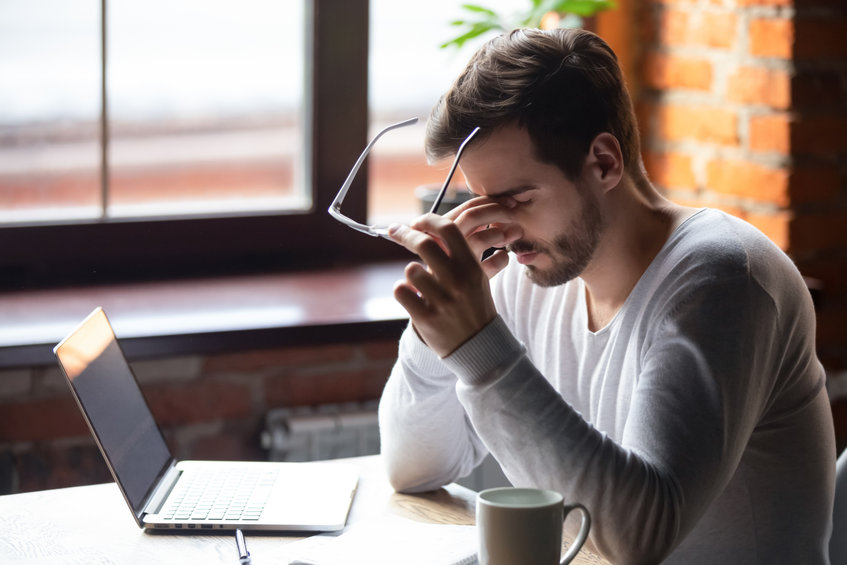It’s no secret that blue light exposure can have a harmful effect on our health. With people spending increasingly more time on our devices, it’s no longer affecting just those with a desk job. In fact, the average American spends over 5 hours a day on their phones alone. So, how is all of that screen time affecting our eyes?
Blue light exposure has been linked to blurred vision, macular degeneration, dry eyes, and more. Studies have shown that even a small amount of exposure, a few minutes to hours, can cause damage. Experts believe that digital eye strain affects 50% of device users. Not only can blue light exposure negatively affect your eyes and vision, but it can be detrimental to overall health. 2 hours or more of exposure can limit the release of melatonin, the sleep hormone, throwing off your body’s natural circadian rhythm. Of course, a lack of sleep can bring on an onslaught of other issues. And, while blue light exposure during the day can have a positive effect on mental health, nighttime exposure has been linked to depressive symptoms. However, there are steps you can take to reduce harmful effects. How can we mitigate symptoms of blue light exposure?

Blue light filters, such as blue light blocking glasses or screen protectors, can help. While they don’t cancel out all of the effects of excessive screen time, they can limit the amount of blue light we are exposed to. Research links eye damage and short-wave blue light with wavelengths between 415 and 455 nanometers; most devices like phones, tablets, and televisions have wavelengths between 400 and 490 nanometers. It has been shown that smartphones, tablets, and laptops emit more blue light than other devices, so filtering these sources should take priority. Blue light blockers that filter 94% of blue light have been shown to reduce the effects.
Limiting screen time in general, but especially before bed, can be especially helpful. Putting down devices up to 3 hours before bedtime can allow your body to maintain its circadian rhythm and produce melatonin. Because your circadian rhythm plays a role in several brain and behavioral processes, like neurotransmission and hormone secretion, this not only leads to better sleep, but can also reduce depressive symptoms.
In contrast, exposure to natural light is very beneficial for our overall health. While we now spend close to 90% of our time indoors, natural light is still integral to our physical and mental well-being. Exposure to natural light has been shown to increase production of Vitamin D, improve our productivity and focus, and even make us happier.
It may be impossible to completely eliminate screen time in today’s day and age, but with a few conscious efforts, we can reduce blue light exposure and its harmful effects. Blue light filters, limited screen time, and natural light exposure can allow us to maintain eye health, sleep, and more. Less time spent on devices, more time spent outdoors, healthier and happier you!
At Landmark Chiropractic of Georgetown, KY we provide individualized health through optimized care. Patients of all ages can find the support necessary to fulfill their journey to wellness by offering massage therapy, nutritional support and rehabilitation along with chiropractic care. Dr. Bergeson is well versed in many different techniques and will implement a combination of techniques that will work best for your individual situation.







